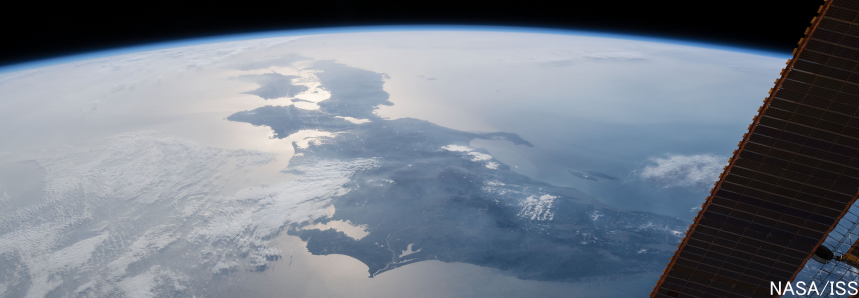Welcome to Department of Geosciences
 Geosciences
Geosciences
"Geosciences" is a discipline for interdisciplinarily recognizing the actual condition of the Earth from the past to the present and building knowledge and technology for predicting its future. To understand the feature of the Earth, we clarify the rules of phenomena that occur due to various activities interacting with the physical and chemical processes of the Earth's materials. Therefore, it is necessary to investigate the history of the Earth as a system. These are the basic knowledge for understanding the current global environment, closely linked to human activity and survival. Furthermore, it is required to understand the global environment and apply the results and disseminate and return them to the community.
In our department, we investigate the formation and evolution of the Earth from the current environment and history. Based on the results, we respond to social demands such as solving global environmental problems and predicting and countermeasures for natural disasters. The educational goal is to develop human resources who can do it.
It is crucial to create a wide range of natural sciences and technology knowledge, apply these to geology, and think from multiple and global perspectives. In this department, we will train students in theoretical and experimental methods for grasping the environment and evolution of the Earth in a multifaceted and time-series manner, field research techniques, and the ability to convey the obtained knowledge accurately. In addition, we will develop human resources who can contribute to society widely by acquiring problem-solving skills in various specialized fields.
 Our Academic Field
Our Academic Field
Our department consists of the following 2 academic fields and 7 research groups.
Environmental Geosciences
Quaternary Research

We research natural environmental records in the strata and anthropogenic effects on nature in the newest geological era (Quaternary), including the relationship between nature and humans from the past to the present.
Geophysics

To understand seismic activities and fault motions, we observe structures of natural fault rocks and conduct physical and chemical analyses. We also conduct laboratory experiments using fault-rock analogues and numerical simulations.
Staff: Tetsuro HIRONO, Junichi FUKUDA
Geoinformatics

From the viewpoint of information science, we use 3D geological model creation and visualization methods, GIS (geographic information system), artificial satellite image analysis, AI (artificial intelligence), etc. In addition, we are researching to understand the Earth's surface features.
Staff: Venkatesh RAGHAVAN, Tatsuya Nemoto
Natural Hazards Geoscience

From the viewpoint of geology, we are researching natural phenomena such as earthquakes, eruptions, and landslides and their accompanying events. In addition, we aim to contribute to disaster mitigation and develop human resources to play an active role in the disaster response.
Stuff: Daisuke MIURA, Mitsuru OKUNO
Earth Evolution Sciences
Mineralogy

Minerals are naturally formed crystalline substances. By examining minerals, we can obtain various information about the constituents of the Earth. Especially, our laboratory is studying minerals using X-ray/electron diffraction, electron microscopy, and different spectroscopic methods.
Staff: Keiji SHINODA, Yusuke SETO
Petrology

We clarify the formation and evolution process of the crust and mantle through field surveys and physical and chemical analysis of collected rock samples. In particular, we are paying attention to the fault process of the continental crust and the mantle process recorded in volcanic rocks.
Staff: Takamoto OKUDAIRA, Tetsuya SAKUYAMA
Geohistory

Based on the geological formations and fossil records of the Earth's surface layer, we are researching the unique phenomena of each geological period and the transition of the global environment from the past to the present.
Staff: Yoichi EZAKI, Natsuko ADACHI, Kiyoko KUWAHARA
